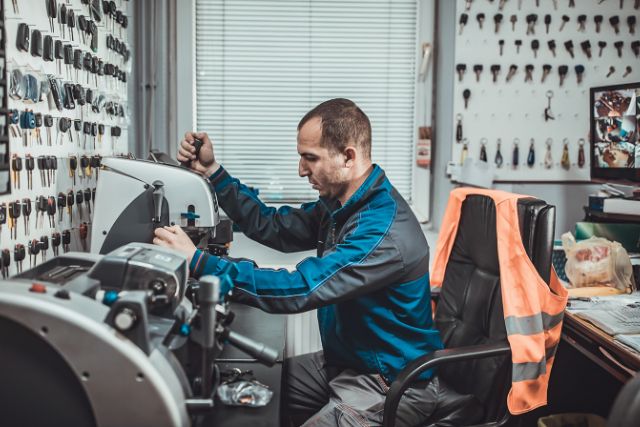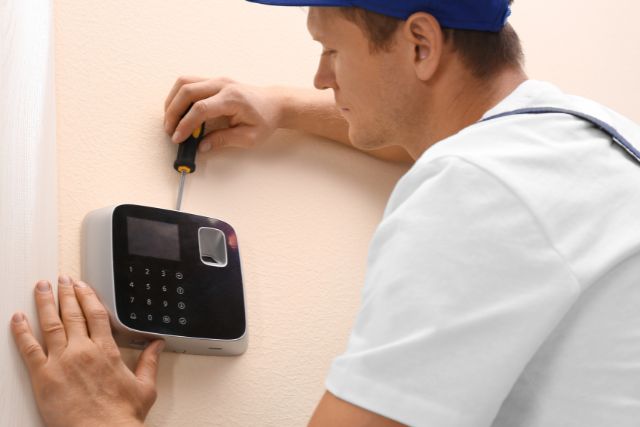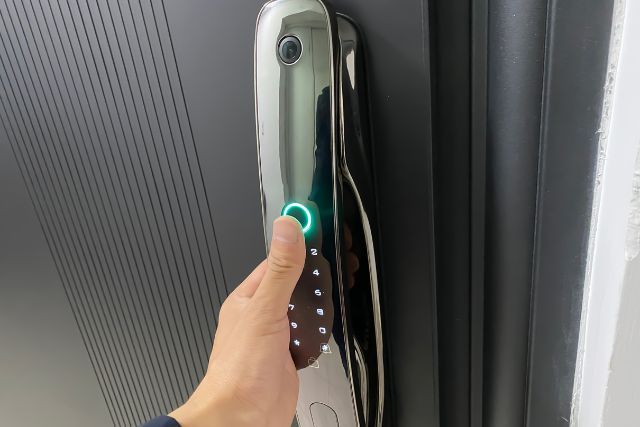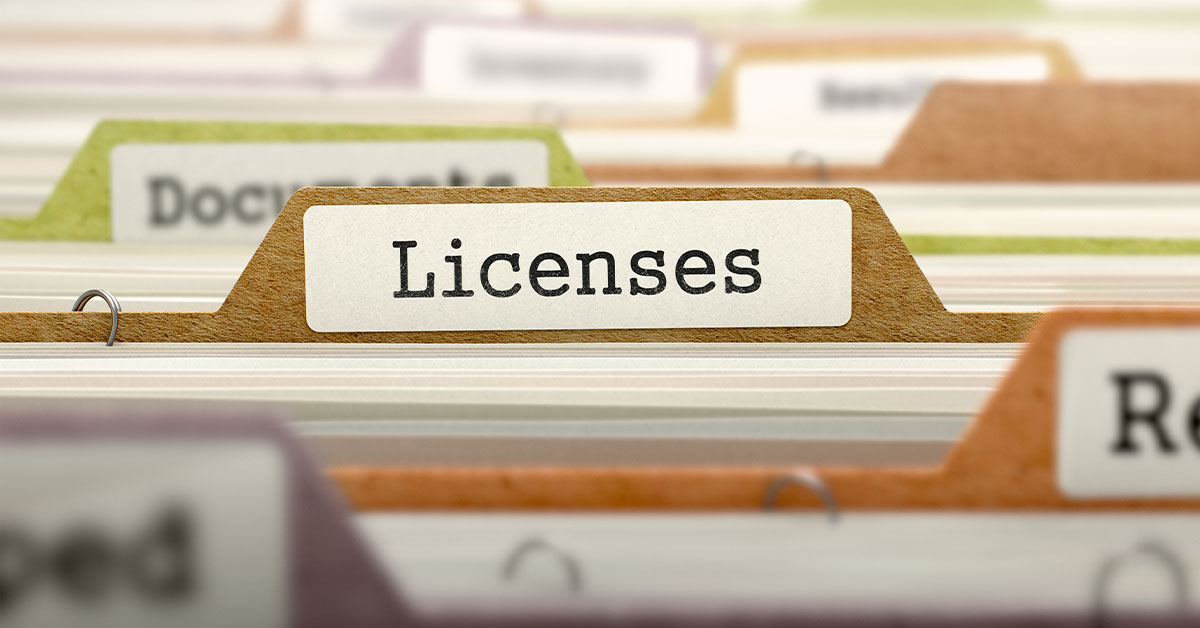Welcome to our in-depth guide on locksmith licensing in Australia.
This post is designed to provide you with all the necessary information about the licensing process, regulations, and requirements for locksmiths in Australia.
Whether you are aspiring to become a locksmith, a professional in the field, or simply interested in the locksmith industry, this post is tailored to help you understand the crucial aspects of locksmith licensing in Australia.
Introduction to Locksmith Licensing in Australia
Locksmithing in Australia is a skilled trade that requires precision, trustworthiness, and expertise.
In Australia, locksmiths are required to be licensed to ensure that they meet the necessary standards of skill and reliability.
Overview of the Locksmith Industry in Australia
The locksmith industry in Australia is a dynamic field, encompassing services like key cutting, lock installation, security system management, and emergency lockout services.
With the advancement in technology, locksmiths today deal with not only mechanical locks but also electronic security systems.
The industry is regulated to maintain high standards of work and ensure public safety.

Importance of Licensing for Locksmiths
Licensing for locksmiths in Australia serves multiple purposes. It verifies the professional’s competency, ensures adherence to legal and ethical standards, and provides a sense of security to customers.
Licensing acts as a safeguard, assuring that only qualified and vetted individuals offer locksmith services, which is critical given the security-sensitive nature of the work.
Understanding the Australian Locksmith Licensing Process
The process of obtaining a locksmith license in Australia involves several steps, including meeting eligibility criteria, undergoing training, and fulfilling various administrative requirements.
Eligibility Criteria for License Application
To apply for a locksmith license in Australia, candidates must meet certain criteria.
This typically includes being over 18 years of age, having no significant criminal record, and possessing the necessary technical skills. Some states may have additional specific requirements.
Steps Involved in the Licensing Process
The licensing process generally includes completing an application, undergoing a background check, completing any required training or apprenticeship, and paying the relevant fees.
The exact process can vary by state and territory.
Required Training and Qualifications
Aspiring locksmiths in Australia are usually required to complete a trade qualification, such as a Certificate III in Locksmithing.
This training provides comprehensive knowledge in areas like key cutting, lock installation, and security systems. Some states may also require practical experience through an apprenticeship.
Key Regulations Governing Locksmiths in Australia
Locksmiths in Australia are governed by a set of regulations and laws that ensure professionalism and ethical practice in the industry.

National and State-Specific Licensing Laws
While there are national guidelines for locksmiths, each state and territory in Australia has its own specific laws and requirements for licensing.
These laws are designed to address the unique security needs and concerns of each region.
Regulatory Bodies and Their Role
Various regulatory bodies oversee the licensing and regulation of locksmiths in Australia. These include state and territory licensing authorities and professional locksmith associations.
They ensure adherence to standards, offer resources and sometimes provide dispute resolution services.
Compliance and Legal Requirements
Compliance with legal requirements is essential for locksmiths in Australia.
This includes adhering to the Australian Consumer Law, privacy laws, and specific state regulations regarding security and locksmith services.
Non-compliance can result in fines, license revocation, and other legal consequences.
Types of Locksmith Licenses and Specializations
Locksmithing is a field with various specializations, and in some cases, different types of licenses may be required.

Different Categories of Locksmith Licenses
Depending on the state or territory, different categories of locksmith licenses may exist, such as general locksmith, automotive locksmith, and security adviser.
Each category may have specific requirements and scopes of work.
Specializations and Advanced Certifications
Beyond general locksmithing, professionals can specialize in areas like automotive locksmithing, forensic locksmithing, or electronic access control systems.
Advanced certifications and training are available for these specializations, enhancing a locksmith’s expertise and service offerings.
Renewal and Maintenance of Locksmith Licenses
Once obtained, a locksmith license in Australia is not indefinite. It requires renewal and ongoing maintenance to ensure that the locksmith remains up-to-date with industry standards and regulations.
Process for License Renewal
Locksmiths must renew their licenses periodically, typically every one to three years.
The renewal process usually involves submitting a renewal application, paying a fee, and proving that any required continuing education or professional development has been completed.
Continuing Education and Skill Upgradation
Continuing education is vital for locksmiths to stay current with the latest technologies and practices in the industry.
Many professional associations offer courses and seminars for ongoing learning and skill enhancement.

Legal Obligations for Maintaining a License
Maintaining a locksmith license in Australia also involves adhering to legal obligations, such as abiding by the latest industry standards, maintaining insurance, and keeping up with any changes in legislation.
Challenges and Common Issues in Licensing
While the licensing process is designed to be straightforward, there can be challenges and common issues that applicants may face.
Addressing Licensing Delays and Obstacles
Delays in processing applications or meeting specific requirements can be a challenge for aspiring locksmiths.
It’s important to be aware of the common obstacles and plan accordingly. Seeking guidance from professional associations can help navigate these challenges.
Navigating Common Compliance Issues
Compliance issues, whether related to paperwork, legal requirements, or ethical standards, can pose significant challenges.
Staying informed about regulatory changes and seeking legal advice when necessary can help in effectively managing these issues.
Impact of Licensing on Professionalism and Industry Standards
Licensing has a significant impact on the professionalism and standards of the locksmith industry in Australia.
Benefits of Licensing for Public Safety and Trust
A licensed locksmith is a trusted professional.
Licensing ensures that locksmiths have the necessary skills and ethical standards to handle sensitive security matters, thereby enhancing public safety and trust in the profession.
Role of Licensing in Enhancing Industry Standards
Licensing plays a critical role in maintaining and raising industry standards.
It ensures a consistent level of skill and knowledge among locksmiths, which in turn contributes to the overall quality and reliability of locksmithing services in Australia.

Resources and Support for Aspiring Locksmiths
For those interested in becoming locksmiths, numerous resources and support systems are available in Australia.
Training Institutes and Courses in Australia
Several institutes in Australia, including TAFE Queensland, offer courses in locksmithing. These range from certification courses to advanced training in specific areas of locksmithing.
Just make sure to find a provider that operates in your state or territory. Also, choosing the right course is crucial for gaining the necessary skills and knowledge based on your career goals.
Professional Associations and Support Networks
Professional locksmith associations, such as the Locksmiths Guild of Australia (LGA), provide a platform for networking, ongoing education, and support.
They can be invaluable resources for both aspiring and practising locksmiths in navigating their careers.
The Future of Locksmith Licensing in Australia
As we look towards the future, the locksmith industry in Australia continues to evolve.

Emerging Trends and Changes in the Industry
The locksmith industry is evolving with technological advancements and changing security needs.
Staying abreast of these trends is essential for any locksmith wanting to remain relevant and competitive in the industry.
Final Thoughts and Advice for Future Locksmiths
Becoming a licensed locksmith in Australia is a journey that requires dedication, skill, and adherence to ethical standards.
With the right training, compliance with regulations, and a commitment to continuous learning, it can be a rewarding and respected profession.





